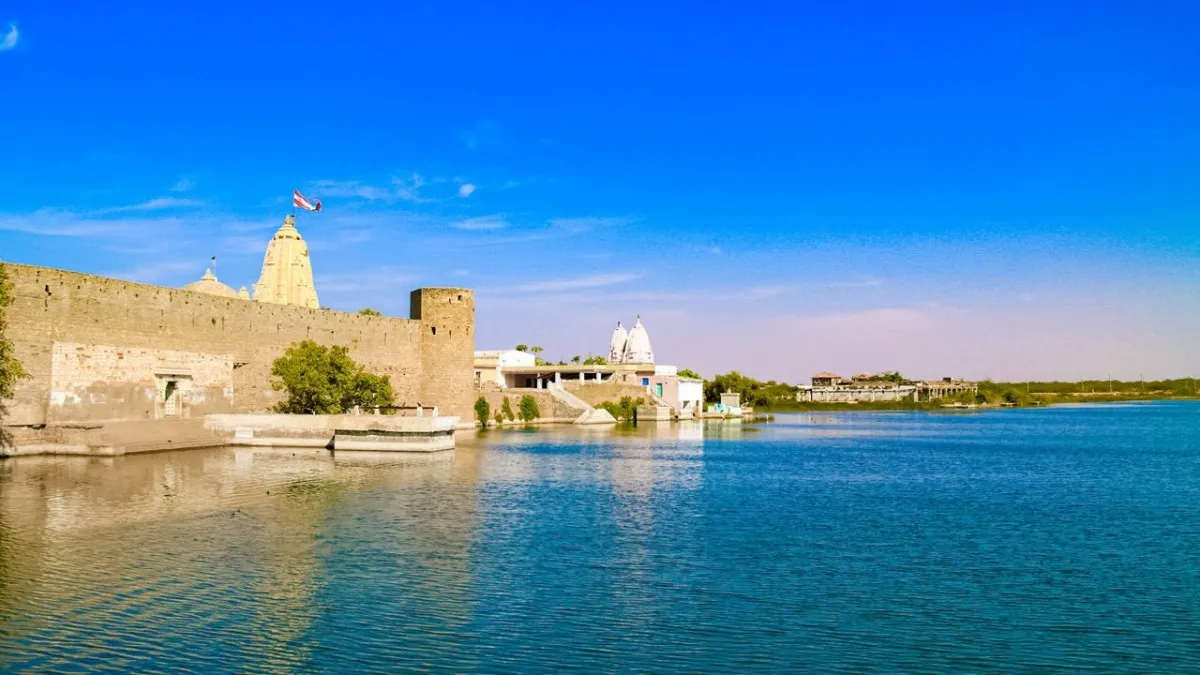World Tourism Day 2025 is not just a calendar event—it is a global celebration of travel, cultural exchange, and sustainable development. Every year on 27 September, nations, communities, and organizations come together to reflect on the role tourism plays in uniting people, boosting economies, and protecting heritage. In 2025, the day will be observed on Saturday, 27 September, and promises to be a significant moment for the travel industry, which continues to evolve in the face of global challenges and opportunities.
In this detailed guide, we will explore the date, history, theme, and significance of World Tourism Day 2025, along with its role in shaping the future of responsible travel.
Why Do We Celebrate World Tourism Day 2025?
Tourism is more than sightseeing or leisure—it is a bridge between cultures and economies. From generating jobs to promoting peace, travel holds immense value for both developed and developing nations. World Tourism Day 2025 reminds us of the following:
- Tourism contributes to nearly 10% of global GDP, making it one of the largest industries in the world.
- It creates direct and indirect employment opportunities for millions of people.
- It promotes cultural awareness and mutual respect.
- Sustainable tourism helps preserve natural ecosystems and heritage sites.
By dedicating a day to tourism, the world collectively acknowledges its transformative power and emphasizes the need to make it inclusive, eco-friendly, and future-ready.
Date of World Tourism Day 2025
World Tourism Day will be celebrated on 27 September 2025, which falls on a Saturday. The date remains the same every year to mark the adoption of the UNWTO Statutes in 1970—a milestone that laid the foundation for global tourism governance.
This consistency ensures that the occasion is recognized worldwide, giving governments, businesses, NGOs, and travelers a fixed date to plan events and initiatives that highlight the benefits of tourism.
History of World Tourism Day
The history of World Tourism Day traces back to 1979, when the United Nations World Tourism Organization (UNWTO) officially decided to observe the day annually. The first celebration took place in 1980.
The chosen date, 27 September, was not random. It coincides with:
- The anniversary of the adoption of the UNWTO Statutes (27 September 1970).
- The peak season for tourism in the northern hemisphere and the start of the season in the southern hemisphere—making it a symbol of global balance.
Since then, every year a different host country leads the official celebrations, adding unique cultural flavors and regional perspectives.
World Tourism Day 2025 Theme
The World Tourism Day 2025 theme will be officially announced by the UNWTO in the months leading up to September. Each year’s theme reflects pressing global issues and opportunities in the tourism sector.
In previous years, themes have revolved around:
- Sustainability and eco-tourism (protecting nature and heritage).
- Tourism and rural development (boosting lesser-known destinations).
- Digital transformation (the role of technology in shaping travel).
- Tourism for peace and inclusivity (making travel accessible to all).
Given the current global priorities, the 2025 theme is likely to emphasize climate resilience, sustainable travel, and innovation in the tourism sector.
Key Details of World Tourism Day 2025
| Detail | Information |
|---|---|
| Event Name | World Tourism Day 2025 |
| Date | 27 September 2025 (Saturday) |
| Established By | United Nations World Tourism Organization (UNWTO) |
| First Celebrated | 27 September 1980 |
| Purpose | To highlight tourism’s role in cultural, economic, and social development |
| Host Country | To be announced by UNWTO |
| Theme | To be announced |
Significance of World Tourism Day 2025
The significance of World Tourism Day 2025 can be understood in several dimensions:
1. Economic Development
Tourism contributes trillions of dollars annually to the global economy. Countries like Spain, Thailand, France, and India rely heavily on tourism revenue. For developing nations, tourism can be a vital tool to reduce poverty and create jobs.
2. Cultural Exchange
Travel allows people to experience diverse traditions, cuisines, music, and languages. This exchange fosters tolerance and mutual respect, breaking down stereotypes and promoting global peace.
3. Environmental Sustainability
The day spreads awareness about responsible travel—encouraging tourists to reduce waste, conserve water, support eco-friendly accommodations, and respect wildlife. Sustainable tourism is essential for protecting fragile ecosystems like coral reefs, rainforests, and mountain ranges.
4. Technological Innovation
With digital platforms and smart solutions, tourism has become more accessible. From AI-powered travel planning to eco-friendly transport options, technology is reshaping how people explore the world.
5. Global Unity
In an era of geopolitical challenges, tourism remains a unifying force. It fosters diplomacy and people-to-people connections, building bridges across borders.
How Countries Celebrate World Tourism Day
World Tourism Day is celebrated with vibrant events, campaigns, and educational initiatives worldwide. Common activities include:
- Tourism Fairs & Exhibitions – Showcasing destinations, cultural performances, and local crafts.
- Seminars & Conferences – Discussing tourism policies, sustainable practices, and innovation.
- Eco-Tourism Drives – Beach clean-ups, tree plantation programs, and awareness campaigns.
- Cultural Festivals – Promoting music, art, cuisine, and traditional practices.
- Discounted Travel Packages – Airlines, hotels, and agencies often launch special offers to encourage travel.
Countries also use the opportunity to spotlight hidden gems in rural areas, giving travelers unique experiences while boosting local communities.
Why World Tourism Day 2025 Matters More Than Ever
As the world continues to adapt to climate change, digital disruption, and post-pandemic realities, World Tourism Day 2025 is more relevant than ever. Here’s why:
- Climate Action – Tourism must embrace carbon-neutral solutions to ensure future generations can still enjoy natural wonders.
- Inclusive Growth – Rural communities and marginalized groups must be integrated into tourism planning.
- Resilient Travel – Lessons from global disruptions highlight the need for adaptable and innovative tourism models.
- Youth Engagement – Young travelers, bloggers, and entrepreneurs are shaping the future of tourism through creativity and digital reach.
Top Destinations to Watch in 2025
As we look ahead to World Tourism Day 2025, several destinations are emerging as must-visit spots due to their focus on sustainability, culture, and unique experiences.
- Bhutan – Known for its high-value, low-impact tourism model.
- Costa Rica – A leader in eco-tourism and rainforest conservation.
- Iceland – Famous for geothermal energy and natural wonders.
- India – Blending heritage tourism with modern wellness retreats.
- Kenya – Offering wildlife safaris with strong conservation programs.
These destinations exemplify how tourism can thrive while preserving the environment and empowering communities.
The Future of Tourism Beyond 2025
The future of tourism will be shaped by three core principles:
- Sustainability – Travelers are demanding eco-friendly options, from green hotels to low-emission transport.
- Technology – Virtual reality, AI-driven travel assistants, and smart airports will redefine convenience.
- Personalization – Tourists now seek authentic, local, and immersive experiences instead of mass-market travel.
World Tourism Day 2025 will serve as a platform to accelerate these changes and ensure that the future of travel is both inclusive and responsible.
Also read: World Cassowary Day 2025: Celebrating and Protecting the World’s Most Dangerous Bird
Conclusion
World Tourism Day 2025 is not just a date on the calendar—it is a global movement that celebrates the power of travel to inspire, connect, and transform lives. From boosting economies and preserving cultures to driving sustainability and innovation, tourism has an undeniable impact on the world.
As the world prepares to celebrate on 27 September 2025, the message is clear: travel is not only about exploring destinations but also about building a better future for people and the planet.


















